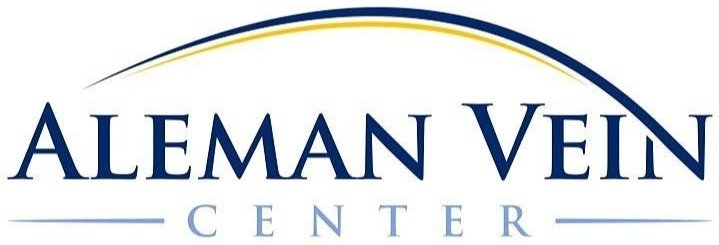The Best Vein Treatment for Your Patients
At Aleman Vein Center, we consider it a great honor that you would consider us to assist in the care of your patients. We truly strive to be the best source of medical vein care in the Greater Atlanta area. In addition, we aim to make your patients happy that you cared enough to send them our way.
We deliver with our focus on clinical excellence and care delivered in a respectful and empathetic manner. To us, your patient and their vein disease is our priority. Nothing else comes first.
Dr. Chad Aleman has over 16 years of experience in the diagnosis and management of venous insufficiency and has personally performed thousands of outpatient venous procedures during that time. Dr. Aleman is Diplomate of The American Board of Venous & Lymphatic Medicine. He has also earned ultrasound credentials, including the Registered Physician in Vascular Interpretation (RPVI) and Registered Vascular Technologist (RVT).
Dr. Aleman has previously held leadership positions as a member of the Medical Executive Committee and a Regional Medical Director for Vein Clinics of America with clinical supervision over multiple other vein clinics. He has trained and supervised multiple other vein specialists, advanced practice providers, sonographers and nurses in the care of patients with venous disease.
Aleman Vein Center is Accredited by the Intersocietal Accreditation Commission (IAC) for Vascular Testing. This is the highest standard for facilities that perform diagnostic ultrasound and is recommended for all medical practices that treat venous disease by both the American Vein & Lymphatic Society and Society of Vascular Surgery. All of our ultrasound technologists are Registered Vascular Technologists (RVT) by the ARDMS.
Our practice is solely dedicated to the care of your patients with venous disease and that will not take a back seat to anything. Veins are not an “add-on” or ancillary service in our practice. We do not spend the bulk of our time treating unrelated issues, such as arterial disease, or performing hospital-based interventional procedures. As such, we are able to perform a more comprehensive work-up and treatment plan individualized to each patient. If your patient has been told they “don’t have anything wrong” when you suspect venous problems or they don’t improve as expected after treatment, we would be happy to see them for a second opinion. We can usually get to the bottom of the issue with a thorough patient history, physical exam, and in-office ultrasound.
We are a local, physician-owned practice. We focus on what is in the best interests of your patients.
Call (404) 777-1728 to Schedule a patient
Fax referrals to
(833) 471-4351
Dr. Aleman’s article from Atlanta Medicine - Journal of the Medical Association of Atlanta, 2023, Vol. 94, No. 6
Click HERE or on image for pdf version.
Visual Cues for Patients that Should be Referred for an Evaluation at Aleman Vein Center
Note that skin findings and leg swelling can occur without obvious varicose veins.
Corona Phlebectatica - this fan shaped cluster of spider veins usually indicates underlying reflux in the great saphenous vein when seen at the medial malleolus and the small saphenous vein when seen at the lateral malleolus.
Note the skin hyperpigmentation and swelling in the calf.
If it looks like BILATERAL cellulitis, it is probably venous stasis dermatitis.
Severe venous insufficiency with hyperpigmentation, lipodermatosclerosis, and small venous stasis ulceration.
Lipodermatosclerosis causes a sunken appearance with thickened skin. The calf frequently appears much larger due to swelling that is trapped above the subcutaneous fibrosis. In severe cases, the lower leg takes on the shape of an “upside down champagne bottle.”
Atrophie Blanche or white atrophy
The typical location of venous stasis dermatitis and other skin changes is just proximal to the medial malleolus due to the anatomical relationship to the distal great saphenous vein.
Severe venous insufficiency with hyperpigmentation, lipodermatosclerosis and risk for ucleration.
Venous stasis ulcer - This is not a disease and should not be treated with wound care alone - this is a complication of venous disease. Treatment of the underlying venous insufficiency can speed healing and help to prevent recurrence. Referral for evaluation and treatment should be considered mandatory for all patients with venous ulcerations, both active and healed.



















